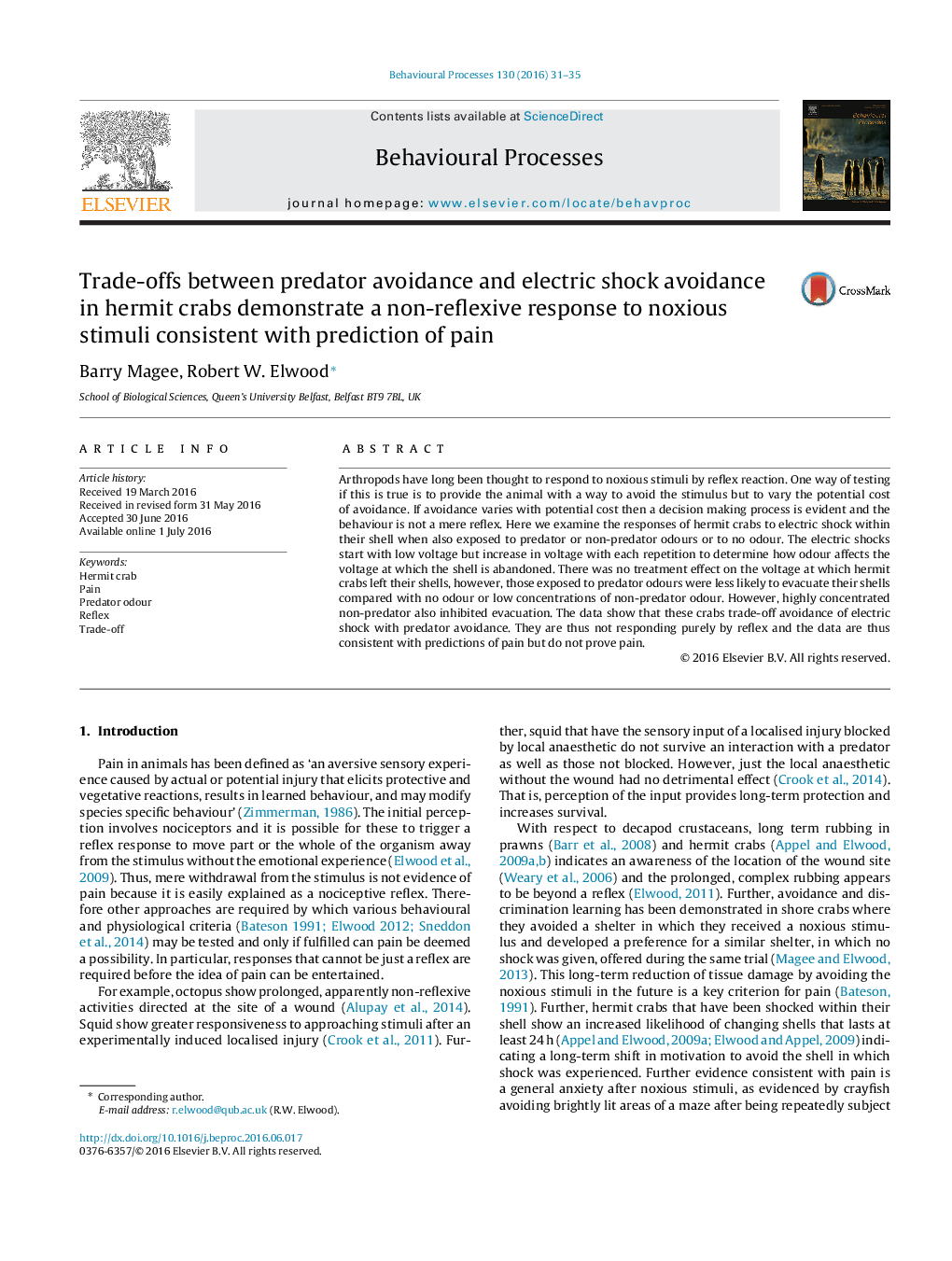| Article ID | Journal | Published Year | Pages | File Type |
|---|---|---|---|---|
| 2426379 | Behavioural Processes | 2016 | 5 Pages |
•Hermit crabs abandon shells if they receive mild electric shock on the abdomen within the shells.•However, crabs are less likely to abandon shells if there is the odour of a predator.•They trade-off shock avoidance with predator avoidance indicating that the response is not a reflex.•The results are consistent with predictions about pain.
Arthropods have long been thought to respond to noxious stimuli by reflex reaction. One way of testing if this is true is to provide the animal with a way to avoid the stimulus but to vary the potential cost of avoidance. If avoidance varies with potential cost then a decision making process is evident and the behaviour is not a mere reflex. Here we examine the responses of hermit crabs to electric shock within their shell when also exposed to predator or non-predator odours or to no odour. The electric shocks start with low voltage but increase in voltage with each repetition to determine how odour affects the voltage at which the shell is abandoned. There was no treatment effect on the voltage at which hermit crabs left their shells, however, those exposed to predator odours were less likely to evacuate their shells compared with no odour or low concentrations of non-predator odour. However, highly concentrated non-predator also inhibited evacuation. The data show that these crabs trade-off avoidance of electric shock with predator avoidance. They are thus not responding purely by reflex and the data are thus consistent with predictions of pain but do not prove pain.
